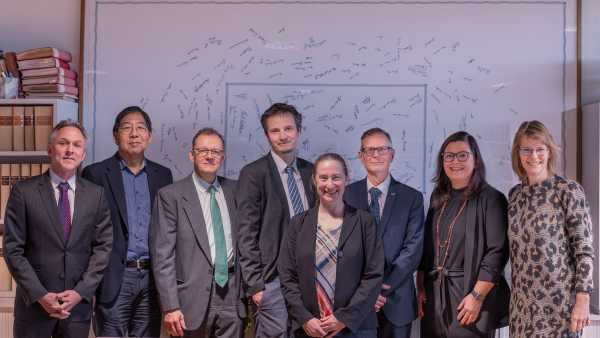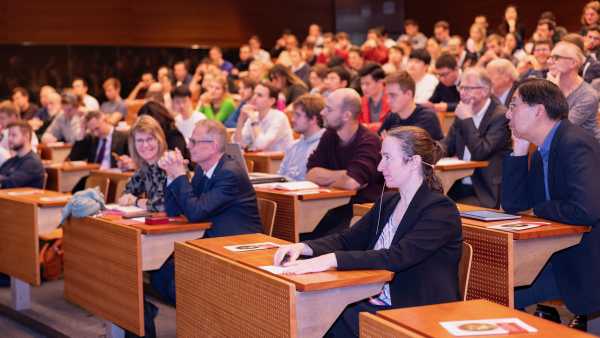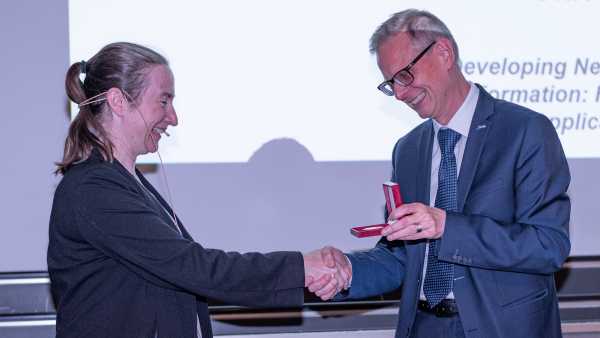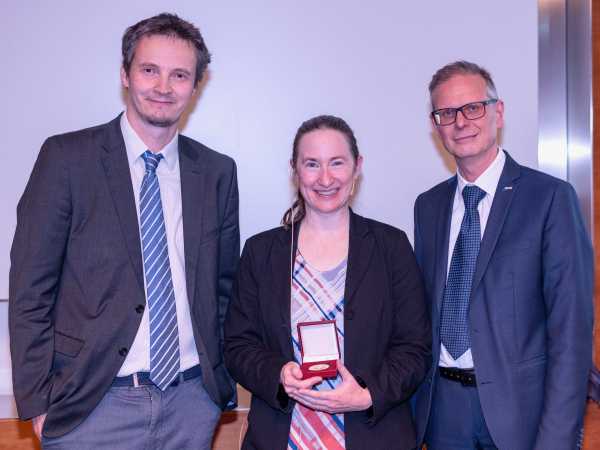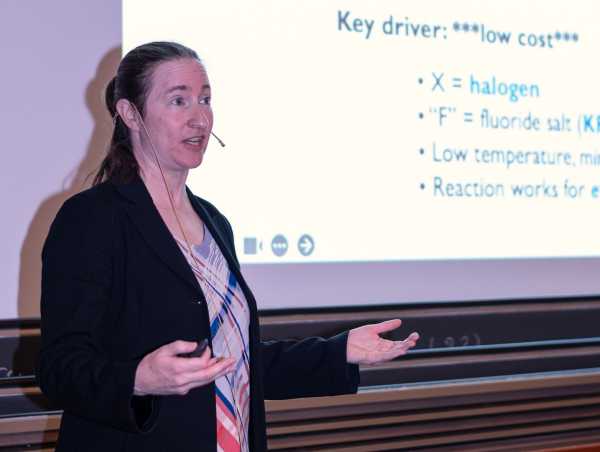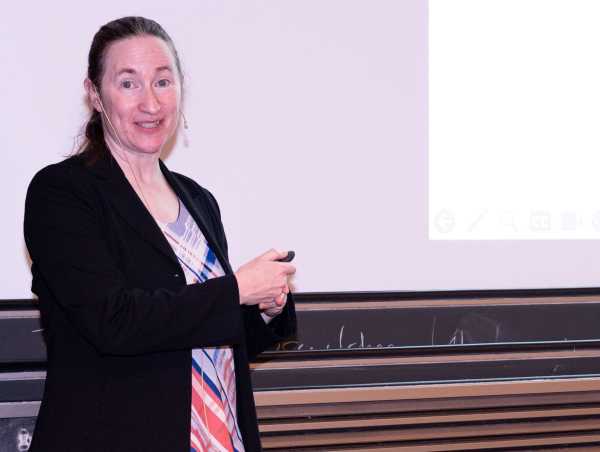Prelog Lecture 2023
Prof. Melanie Sanford

Professor Melanie Sanford graduated from Yale University with a BS and MS in chemistry in 1996. At Yale, she performed research with Prof. Dr. Robert H. Crabtree. She then moved to the California Institute of Technology in Pasadena, CA, to work under the supervision of the late Prof. Dr. Robert H. Grubbs, who received the Nobel Prize in Chemistry in 2005. In the Grubbs group, she published seminal mechanistic studies on the olefin metathesis reaction that largely contributed to the success and further development of this field.
After receiving her PhD in 2001, she moved to Princeton University to perform postdoctoral studies under the mentorship of Prof. John T. Groves. Prof. Sanford then joined the faculty at the University of Michigan in 2003 and rapidly rose through the ranks to become the Moses Gomberg Distinguished University Professor of Chemistry and Arthur F. Thurnau Professor of Chemistry.
Prof. Sanford’s research program is characterized by a rational, mechanistic approach to reaction design. She is one of the pioneers in the area of C–H functionalization. Early in her career, she demonstrated the key role of high oxidation state palladium intermediates in catalytic C–H functionalization reactions through outstanding mechanistic and organometallic studies. She also popularized the concept of directing group assisted C–H functionalization for catalytic transformations – a key to facilitate the C–H metalation step and control the selectivity of the process among numerous competing C–H bonds. This has unlocked the synthetic power of C–H functionalization and has ultimately led to an extremely large number of new, exciting synthetic transformations that have found numerous downstream applications in the synthesis of important molecules, such as pharmaceuticals.
Her current research still targets the development of new C–H functionalization reactions and their mechanistic studies. She also runs one of the world’s most active and successful research program in the area of fluorination, including biomedical applications through PET imaging using 18F tracers. She also actively works on the design of new redox flow batteries. Few researchers can maintain such a multifaceted research program and contribute to each area at the highest possible level.
Prof. Sanford has been a dedicated mentor throughout her career. Numerous of her alumni now occupy leading positions worldwide in both academia and industry. Her outstanding mentoring was recognized by a Rackham Distinguished Graduate Mentor Award. She is a passionate teacher at the University of Michigan. Prof. Sanford has also distinguished herself over the years for fostering diversity and inclusion in chemistry.
Professor Sanford’s impactful research and teaching have been recognized by numerous awards and honors. Among many others, she received the ACS Award in Organometallic Chemistry, the ACS Award in Pure Chemistry, the Arthur C. Cope Scholar Award, the OMCOS Award, the Blavatnik Award, and the RSC Fluorine Prize. Her research was also recognized by numerous industrial awards, such as the BASF Catalysis Award and the Roche Excellence in Chemistry Award, clearly showing the practical impact of her research. She has received a MacArthur fellowship, a distinction honoring creative individuals from the sciences or arts «who have shown extraordinary originality and dedication in their creative pursuits and a marked capacity for self-direction». She is a member of the National Academy of Sciences and the American Academy of Arts and Sciences. She is one of the executive editors of the Journal of the American Chemical Society.
Through her exceptionally creative and ambitious work across multiple disciplines of chemistry, as well as her relentless commitment to mentorship, teaching and diversity, Prof. Sanford exemplifies the spirit of passion, curiosity, and scholarship of the distinguished list of previous awardees. We are honored to recognize her outstanding contributions by awarding her the 2023 Prelog Medal of the Laboratorium für Organische Chemie at ETH Zürich.
Photo of Prof. Melanie Sanford: ©Michigan Photography 2019
All photos shown in the gallery below by Rahel Heeb | LOC
